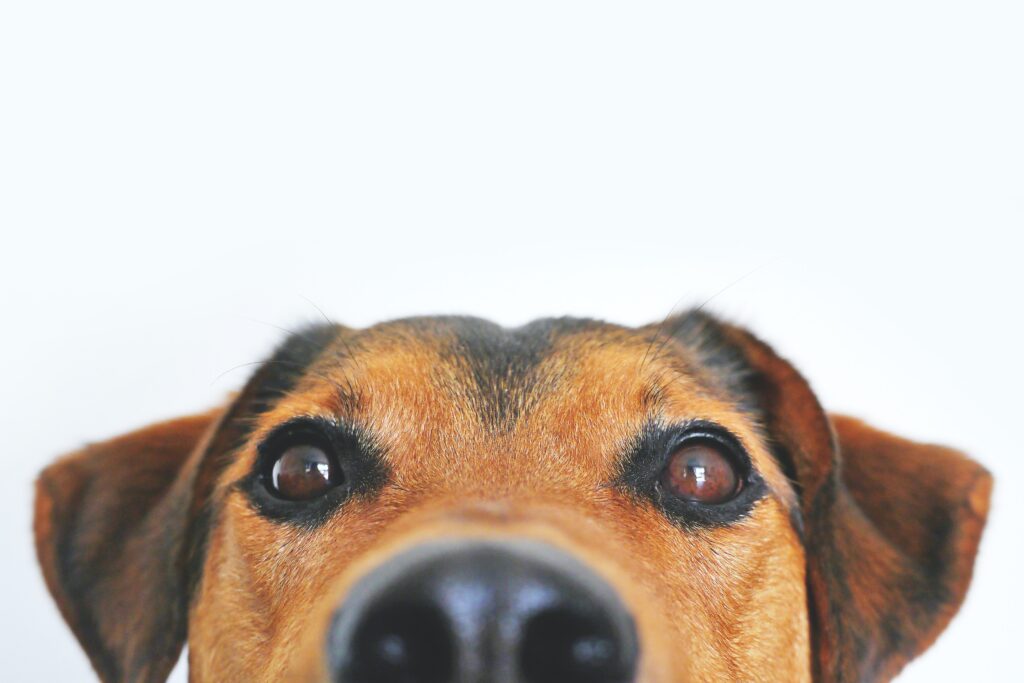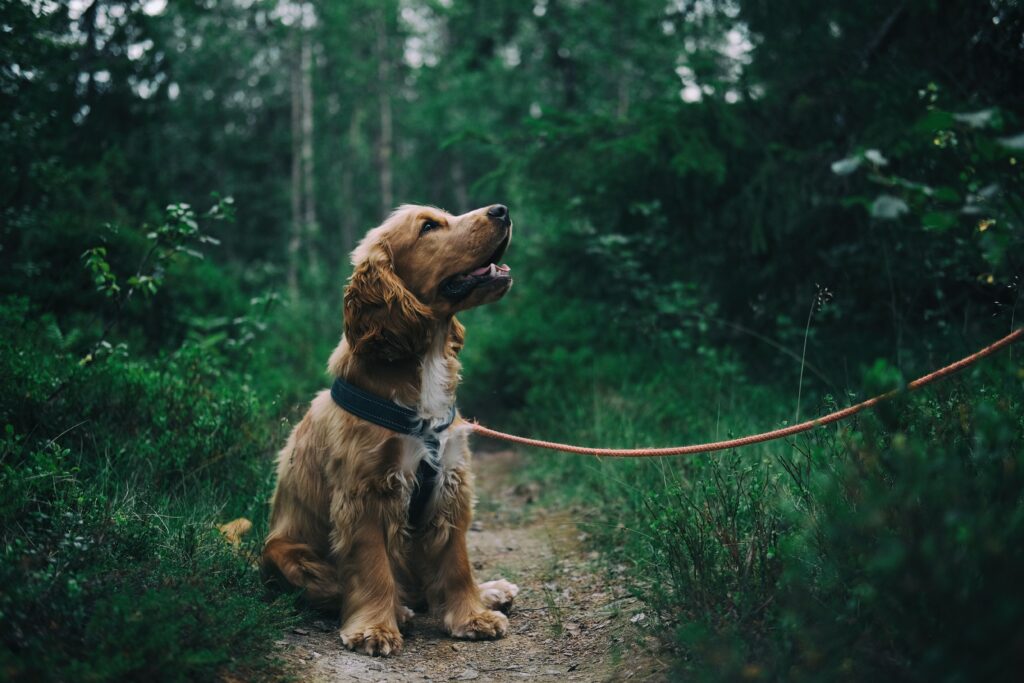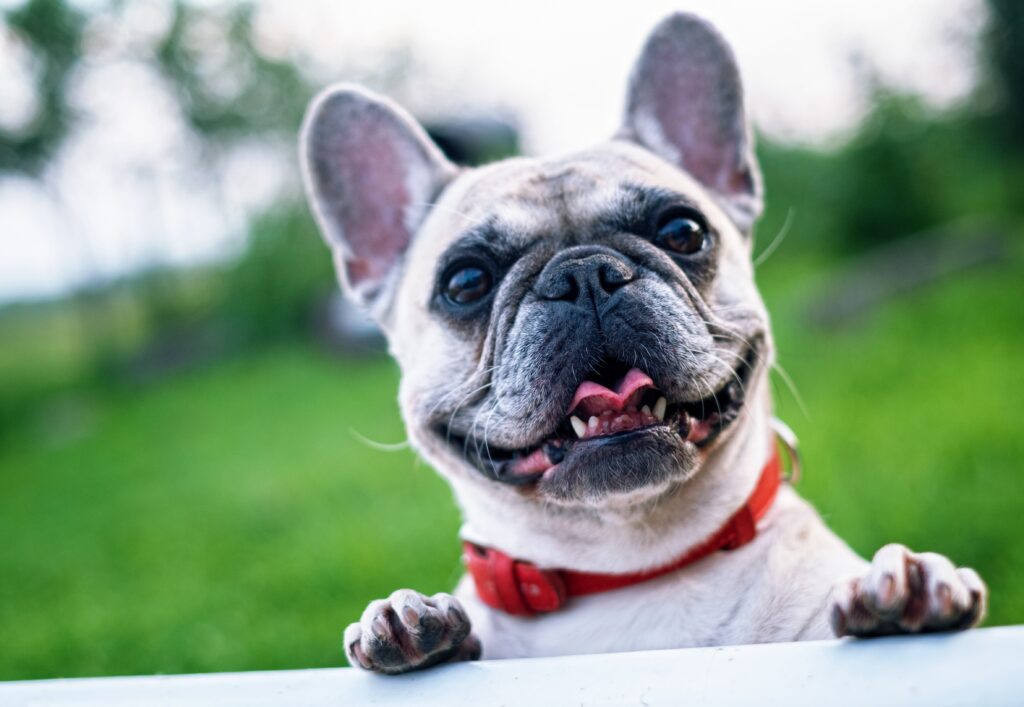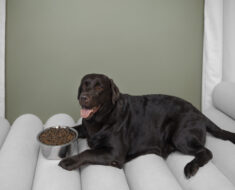Ever wondered why your male dog chooses your bed as his personal restroom? It can be quite perplexing and frustrating to wake up to a wet surprise.
In this article, we will uncover the reasons behind this behavior and shed light on why your beloved pet may be exhibiting this unusual habit. Here check out why does your dog sleek into bed at night.

Understanding the motives behind your dog’s actions is the first step towards finding a solution and ensuring a clean and comfortable sleeping space for both you and your furry friend.
So, let’s explore the intriguing world of canine behavior and discover why your male dog pees on your bed.
Understanding Marking Behavior
What is marking behavior?
Marking behavior is a natural instinct in dogs, particularly male dogs. It involves urinating on objects or areas to communicate and establish their territory.
Unlike regular urination, marking is characterized by small amounts of urine and often performed on vertical surfaces.
How does marking behavior differ from regular urination?
Regular urination is a biological need for dogs to eliminate waste.
It usually occurs in larger quantities and is not associated with specific objects or locations. On the other hand, marking behavior is driven by a dog’s desire to leave scent marks and assert dominance. Here look up why does your dog lick you before bed?
1. Territorial Instincts
Why do male dogs mark their territory?
Male dogs mark their territory to communicate their presence to other dogs and animals.
By leaving scent marks, they establish boundaries and assert their dominance. This behavior is especially prevalent in intact (non-neutered) male dogs.
How does your bed become a target?
As a prominent object in your home, your bed holds significant value for your dog. Dogs have a keen sense of smell and can detect the scent of their owners on the bed.

By marking your bed, your male dog is claiming it as part of his territory, ensuring his scent is prominently displayed.
2. Separation Anxiety
How does separation anxiety contribute to this behavior?
Separation anxiety is a common issue among dogs, causing distress when their owners leave.
Dogs with separation anxiety may engage in destructive behaviors, including peeing on beds. The scent of their owner on the bed provides comfort and somewhat alleviates anxiety.
Why does your bed provide comfort for an anxious dog?
Your bed carries your scent, which acts as a source of reassurance for your dog. When you’re away, your dog may seek solace on the bed due to the familiar scent, helping to ease their anxiety.
Unfortunately, this can lead to the unwanted behavior of bed peeing. Here check out why does your dog bring poop into his bed?
3. Medical Issues
Could medical problems be causing this behavior?
Yes, medical problems can contribute to a dog peeing on the bed. Urinary tract infections, bladder stones, diabetes, and kidney issues can all cause increased urination or loss of bladder control.
If your dog’s behavior changes suddenly or if there are other signs of illness, consult a veterinarian for a proper diagnosis.
What are some common medical conditions to consider?
Some common medical conditions that may lead to inappropriate urination include urinary tract infections, bladder stones, urinary incontinence, diabetes, and prostate issues.
These conditions can cause discomfort or affect your dog’s ability to control their bladder.
4. Hormonal Influences
How do hormones affect a male dog’s behavior?
Hormones, particularly testosterone, play a significant role in marking behavior. Intact male dogs produce higher levels of testosterone, which can intensify their territorial instincts.

Neutering, or the lack thereof, can impact hormonal balance and influence the likelihood of bed peeing.
Is neutering a solution to this problem?
Neutering can be an effective solution to minimize marking behavior in male dogs. It reduces testosterone levels and diminishes territorial instincts.
However, it is important to note that neutering may not completely eliminate the behavior if other factors are contributing to the issue.
5. Stress and Changes in Routine
How does stress impact a dog’s behavior?
Stress can have a significant impact on a dog’s behavior, including urination issues.
Changes in routine, new environments, or the addition of new pets or family members can trigger stress in dogs. Bed peeing may be a manifestation of this stress as your dog seeks to cope with the changes.
What changes in routine can trigger bed peeing?
Changes in routine, such as moving to a new home, rearranging furniture, or having guests stay over, can disrupt a dog’s sense of security.
These disruptions may lead to anxiety and, subsequently, bed peeing. Providing a stable and predictable environment can help alleviate stress and reduce the likelihood of this behavior.
6. Behavioral Training and Reinforcement
How can you train your dog to stop this behavior?
Consistent and positive reinforcement-based training is crucial in addressing bed peeing. Reward your dog for appropriate elimination behavior outside or in designated areas.
Supervise your dog closely and redirect them to appropriate spots if you notice signs of marking behavior. Using commands like “outside” or “go potty” can help establish a routine.
What positive reinforcement techniques can be used?
Positive reinforcement involves rewarding desired behavior.
When your dog eliminates in the appropriate location, praise them and offer treats or affection as a reward. Avoid punishment-based training methods, as they can create fear or anxiety in your dog and worsen the problem.
7. Environmental Factors
Are there any environmental factors to consider?
Environmental factors can influence a dog’s behavior, including bed peeing. The presence of other animals, such as neighborhood dogs or strays, near your home can trigger marking behavior.

Additionally, the smell of previous accidents on the bed may entice your dog to continue peeing on the bed. It’s important to address these environmental factors to discourage the behavior.
How can you modify your dog’s environment to discourage bed peeing?
1. Clean and deodorize the bed thoroughly:
Use an enzymatic cleaner designed for pet accidents to remove lingering urine odors. This will help eliminate the scent that attracts your dog to the bed.
2. Limit access to the bed:
Close the bedroom door or use baby gates to prevent your dog from entering the room and accessing the bed when you’re not present. This helps break the habit of bed peeing.
3. Create a comfortable alternative:
Provide your dog with a cozy and designated space, such as a comfortable dog bed or crate, where they can rest and feel secure. Make this area appealing by placing their favorite toys and blankets there.
4. Use deterrents:
Consider using pet-safe deterrent sprays or motion-activated devices near the bed to discourage your dog from approaching or marking the area. These products emit scents or sounds that are unpleasant to dogs.
5. Increase exercise and mental stimulation:
A tired and mentally stimulated dog is less likely to engage in destructive behaviors. Regular exercise and interactive play sessions can help reduce stress and anxiety, decreasing the urge to mark territory.
8. Seeking Professional Help
When should you consult a veterinarian or a professional dog trainer?
If your efforts to address bed peeing are not successful or if you suspect underlying medical issues, it’s advisable to seek professional help. A veterinarian can thoroughly examine and recommend appropriate tests to rule out any health problems.
A professional dog trainer or behaviorist can provide guidance on training techniques tailored to your specific situation. They can assess the root cause of the behavior and create a customized plan to modify it effectively.
What can professionals do to assist you?
Professionals have the knowledge and expertise to analyze the complexities of bed peeing behavior in dogs. They can provide a comprehensive assessment of your dog’s situation and offer guidance on effective training methods.
They may also suggest behavior modification techniques or recommend necessary medications to address underlying anxiety or medical conditions.
FAQs
Can neutering my male dog solve the problem of bed peeing?
Neutering can reduce marking behavior in male dogs but may not eliminate it entirely. Other factors, such as anxiety or medical conditions, can contribute to bed peeing.
Is it possible to retrain an adult dog to stop this behavior?
Yes, with patience and consistency, it’s possible to retrain an adult dog to stop bed peeing. Positive reinforcement-based training methods can be effective.
How long does it typically take to address this issue?
The timeline for resolving bed peeing can vary depending on the dog and the underlying causes. It may take weeks to months of consistent training and environmental modifications.
Are certain dog breeds more prone to bed peeing?
While any dog can exhibit bed peeing behavior, certain breeds may be more prone to marking behavior due to their natural instincts. These may include breeds like Dalmatians, Chihuahuas, and Terriers.
Can anxiety medication help in resolving this problem?
In some cases, anxiety medication prescribed by a veterinarian may be beneficial in reducing anxiety-related bed peeing. However, it should always be used in conjunction with behavior modification techniques and under professional guidance.
Conclusion
Discovering why your male dog pees on your bed is the first step in addressing this unwanted behavior. It could be due to marking instincts, separation anxiety, medical issues, hormonal influences, stress, or environmental factors.
By understanding the underlying causes, you can take appropriate steps to modify your dog’s behavior.
Remember, consistency, positive reinforcement, and creating a supportive environment are key elements in addressing bed peeing.
With patience, training, and, if needed, professional assistance, you can help your dog overcome this behavior and maintain a clean and harmonious living space.






